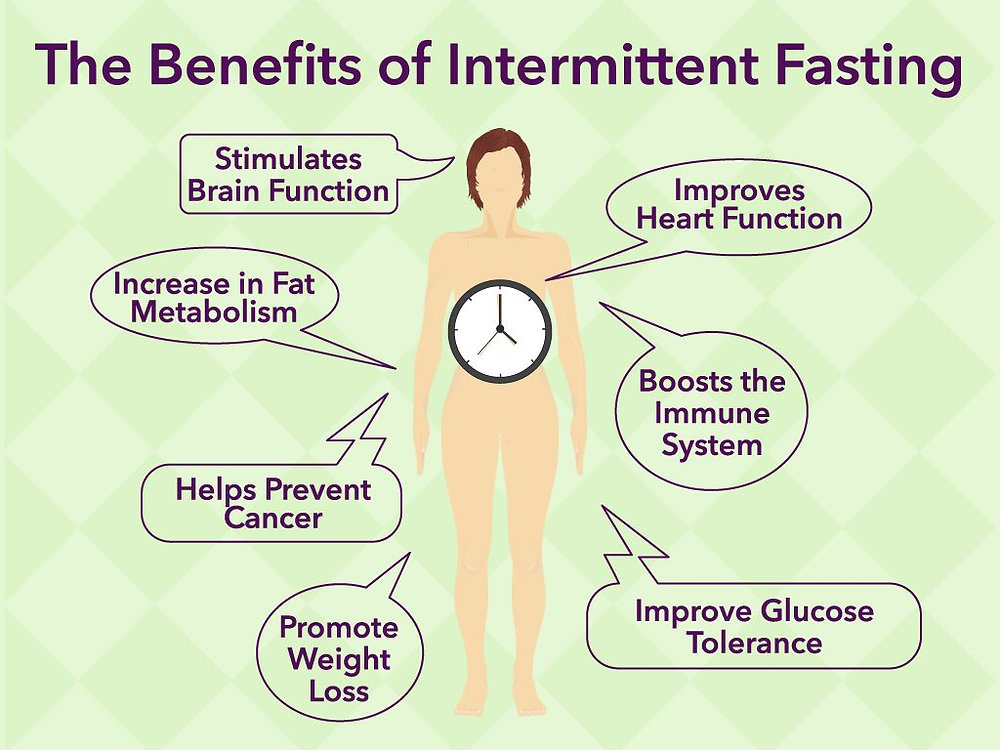In our fast-paced world, the concept of fasting may seem counterintuitive to our ever-growing desire for quick fixes and instant gratification. However, the practice of intermittent fasting is gaining momentum as a sustainable and scientifically-backed approach to health and well-being. This revolutionary eating pattern not only helps with weight management but also offers a plethora of health benefits that go beyond just shedding a few pounds.
In this blog, we’ll take a closer look at what intermittent fasting is, how it works, and the remarkable benefits it can bring to your life.

What is Intermittent Fasting?
Intermittent fasting (IF) isn’t about counting calories or following rigid diets. It’s a flexible and adaptable eating pattern that focuses on when you eat rather than what you eat. IF cycles between periods of eating and fasting, allowing your body to reap the rewards of this time-tested practice.
How It Works
Intermittent fasting operates on the premise that your body has two states: a fed state and a fasted state. When you eat, your body is in the fed state, digesting and absorbing nutrients. After a few hours without food, it enters the fasted state, which allows it to tap into stored energy, primarily in the form of glycogen and later, fat. The transition between these states leads to numerous health benefits.

Common Intermittent Fasting Methods
- The 16/8 Method: This method restricts your daily eating window to 8 hours, with a 16-hour fasting period. For example, you might eat from 12 PM to 8 PM and fast from 8 PM to 12 PM the next day.
- The 5:2 Diet: With this approach, you consume your regular diet for five days a week and restrict your calorie intake to around 500-600 calories for the remaining two non-consecutive days.
- The Eat-Stop-Eat Method: This involves fasting for a full 24 hours once or twice a week. For example, you could have dinner at 7 PM one day and not eat again until 7 PM the following day.
- The Alternate-Day Fasting: On alternate days, you alternate between normal eating and fasting. This approach can be modified to allow for a small number of calories on fasting days.
- The Warrior Diet: In this method, you fast for 20 hours a day and have a 4-hour eating window, typically in the evening.

Health Benefits of Intermittent Fasting
- Weight Management: IF can help with weight loss by restricting the time during which you consume calories, which often leads to reduced calorie intake. Furthermore, fasting may boost your metabolic rate and enhance fat burning.
- Improved Insulin Sensitivity: Intermittent fasting can help regulate blood sugar levels, reducing the risk of type 2 diabetes. During fasting, your body uses insulin more effectively.
- Heart Health: IF may lead to lower blood pressure, reduced cholesterol levels, and a decreased risk of heart disease. It can also improve other risk factors such as triglycerides.
- Cellular Repair and Longevity: Fasting triggers a process called autophagy, in which the body cleans out damaged cells and regenerates new ones. This process is linked to a longer and healthier life.
- Brain Health: Some studies suggest that intermittent fasting can support brain health, potentially reducing the risk of neurodegenerative diseases like Alzheimer’s.
- Inflammation Reduction: Fasting can help reduce chronic inflammation, which is linked to various diseases. This is due to the body’s response to fasting and cellular repair mechanisms.
- Cancer Prevention: Some animal studies indicate that intermittent fasting may reduce the risk of cancer. However, more research in humans is needed.
Tips for Starting Intermittent Fasting
Before starting intermittent fasting, consider the following tips:
- Consult a healthcare professional to ensure IF is safe for you, especially if you have underlying health conditions.
- Choose a method that suits your lifestyle and preferences.
- Stay hydrated during fasting periods by drinking water, herbal tea, or black coffee.
- Focus on nutrient-dense foods during your eating windows to maximize the benefits.
- Listen to your body – if you feel unwell, it’s essential to break your fast.
Intermittent fasting is more than just a trend; it’s a lifestyle choice that can offer a healthier, more vibrant life. As you embark on your intermittent fasting journey, remember that it’s not just about weight loss. It’s about embracing a practice that can enhance your overall well-being, from improved metabolic health to longevity and a clearer mind. So, take a step toward a healthier you today, and experience the incredible benefits of intermittent fasting. Your body and mind will thank you.




